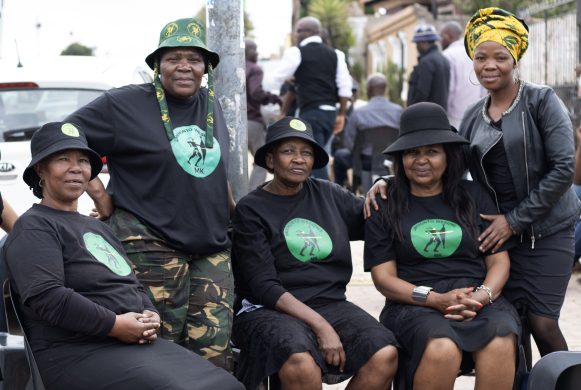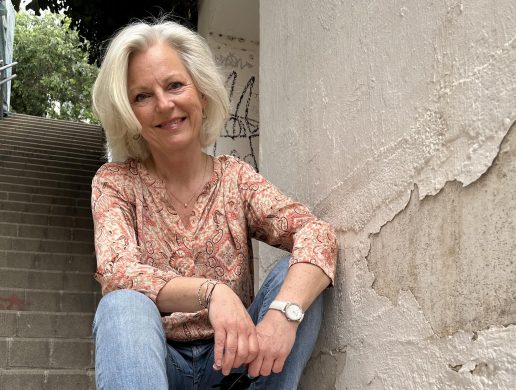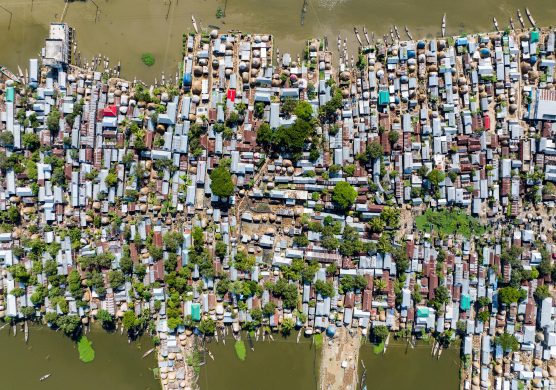Af Kristy Siegfried, IRIN News
Kun en tredjedel af verdens flygtninge bor i flygtningelejre og FN’s flygtningeorganisation UNHCR anser i dag flygtningelejrene for at være sidste udvej. Organisationen har udformet en særlig politik på området.
JOHANNESBURG, 7 October 2014 (IRIN) – For years, the images most commonly associated with refugees have been of sprawling, dusty camps populated by rows of tents sheltering thousands of men, women and children with little to occupy them besides queuing for aid handouts.
The reality is that only just over one third of the world’s 17 million refugees live in camps today. The rest choose to live in cities or communities where a more independent, if precarious, existence is possible.
The international humanitarian community has been slow to respond to this reality, but is now scrambling to catch up, especially in view of the crisis in Syria which has so far produced over three million refugees, the majority of whom are living in cities in neighbouring countries.
The UN Refugee Agency (UNHCR), in particular, has struggled to adapt its traditionally camp-based model to fulfil its mandate of ensuring that all refugees have access to protection and assistance, wherever they may live.
In 2009, it released a policy statement on refugee protection and solutions in urban areas which recognized urban areas as “a legitimate place for refugees to enjoy their rights”.
Now it has gone a significant step further with the release of an “Alternatives to Camps” policy which commits the agency to actively pursue alternatives to camps whenever possible. It is the first official recognition by UNHCR that camps should be a last resort rather than the default response to refugee influxes, and has been widely welcomed by the refugee rights community as representing a major, if overdue, shift in the agency’s approach.
Between the UNHCR’s establishment in the early 1950s and the installation of its current High Commissioner Antonio Guterres in 2005, “there was a widespread assumption within the humanitarian community that refugees belonged in camps,” according to Jeff Crisp, formerly the agency’s head of policy and evaluation, writing in a blog for advocacy group Refugees International, where he now serves as senior director for policy and advocacy.
Camps becoming harder to fund
Keeping refugees in camps has not only been logistically far more convenient for aid providers, but has often been the preference of host states who view camps as minimizing both the perceived security threat posed by refugees and their burden on local communities and economies. However, as refugee crises have become more protracted, with over six million refugees now living in exile for five or more years, camps have become increasingly difficult to fund.
“A lot of funding goes to new emergencies but within as little as 18 months, if the emergency is not continuing, there’s a falling away of donor support,” said Steven Corliss, director of UNHCR’s programme management and support division. As support diminishes programmes such as secondary education are the first casualties, but eventually even basic services come under pressure. Recently, the World Food Programme had to cut food rations for a third of all African refugees, the majority of them long-term refugees confined to camps.
UNHCR’s new policy acknowledges that camps remain a necessary feature of the humanitarian landscape, particularly in the context of emergencies and where host governments insist on them, but adds that “they nevertheless represent a compromise that limits the rights and freedoms of refugees and too often remain after the emergency phase and the essential reasons for their existence have passed.”
“Camps should be the exception and, to the extent possible, a temporary measure,” states the policy.
Corliss of UNHCR explained that the policy was the result of an internal discussion and “a conviction that this is the right and most humane approach…
“The idea is to give people a meaningful choice and the opportunity to live a more dignified life,” he told IRIN.
Sonia Ben Ali, founding director of Urban Refugees, an NGO, described the new policy as “a milestone” and welcomed its rights-based approach. “It plays a very strong role in showing how UNHCR recognizes that camps are not the proper conditions for refugees to live in,” she told IRIN.
Getting host states on board could be tricky
Læs hele artiklen på IRIN News
Downlaod UNHCRs Policy on alternatives to camps (PDF, 12 sider)















